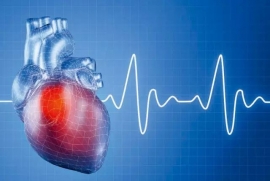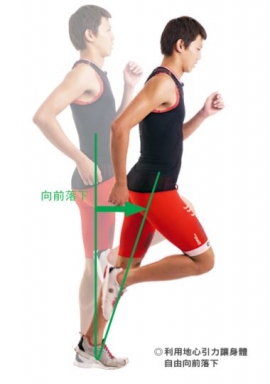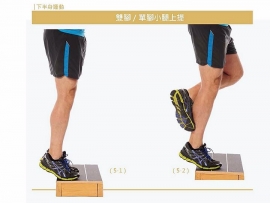The fitness-oriented individual should be aware of the acute and chronic effects of alcohol on physical performance. Acutely, alcohol can cause negative effects on motor skills and physical performance. Chronically, alcohol abuse may eventually impede physical performance; individuals diagnosed with alcohol dependence have displayed varying degrees of muscle damage and weakness.
健身人群应该注意饮酒对运动表现的短期和长期影响。短期,饮酒对运动技能和表现具有负面影响。长期,酒精滥用可能最终妨碍运动表现;确诊的酒精依赖者运显现出不同程度的肌肉损伤和虚弱。
Alcohol abuse is at least as prevalent in the athletic community as it is in the general population; in fact, the majority of athletes have begun drinking by the end of high school. Both male and female college students have higher rates of binge drinking than non-athletes, and drinking five or more drinks on any one occasion affects the brain and body for several days.
运动团体的酒精滥用至少和一般人群的一样盛行。实际上,在高中毕业之前,大多数运动员已经开始饮酒。无论是男生还是女生,大学体育生狂欢饮酒发生率高于非运动员学生。在任何场合,饮酒5份或以上将影响大脑和身体数日。
(译注:5 drinks被译作5份。不知大家是否注意过,如果您在一个较高级的酒吧要一杯威士忌,人家只给您一小点。这就是1 drink或1份,它是1.5 盎司,约42.5克。现在提倡的适度饮酒是指,每天不超过2 drinks,或1.7 两白酒)
How Could Drinking Affect My Athletic Performance?
饮酒如何影响运动表现?
Alcohol has been described as a performance impairing drug. Exercise is a complex activity utilizing many of the body's organ systems; alcohol exerts an effect on most of these systems, including the central nervous system, muscle energy stores and the cardiovascular system.
酒精已经被描述为影响运动表现的药物。运动是一种复杂的活动,需要动用许多人体器官;饮酒对大多数器官系统都有影响,包括中枢神经系统,肌肉能量储备和心血管系统。
What Happens if I Exercise With an Elevated Blood Alcohol Level?
当血醇浓度偏高时,运动将产生什么结果?
Alcohol has acute effects on motor skills, strength and power, and aerobic performance.
酒精将短期影响运动技能,力量和耐力,和有氧能力。
Alcohol and motor skills---饮酒和运动技能
Low amounts of alcohol (0.02-0.05g/dL) result in:
decreased hand tremors
slowed reaction time
decreased hand-eye coordination
少量饮酒 (0.02-0.05g/dL)导致:
手的动作微颤
反应时间变慢
手眼协调能力下降
Moderate amounts of alcohol (0.06-0.10 g/dL) result in:
further slowed reaction time
decreased hand-eye coordination
decreased accuracy and balance
impaired tracking, visual search, recognition and response skills
中度饮酒 (0.06-0.10g/dL)导致:
反应时间进一步变慢
手眼协调能力下降
准确性和平衡能力降低
跟踪,视觉搜索,识别和复印能力下降
Alcohol and strength, power, and short-term performances
饮酒和力量,耐力,以及短期运动表现
Alcohol will not improve muscular work capacity and results in:
a decrease in overall performance levels
slowed running and cycling times
weakening of the pumping force of the heart
impaired temperature regulation during exercise
decreased grip strength, decreased jump height, and decreased 200- and 400-meter run performance
faster fatigue during high-intensity exercise
饮酒不会提高肌肉的工作能力,导致:
整体运动能力下降
跑步个单车速度降低
心脏收缩变弱
运动时的体温调节功能受影响
握力降低,跳跃高度下降,200-和400-米短跑能力下降
在高强度运动时,更容易疲劳
Alcohol and aerobic performance---饮酒和有氧能力
Adequate hydration is crucial to optimal aerobic performance. The diuretic property of alcohol can result in:
dehydration and significantly reduced aerobic performance
impaired 800- and 1500-meter run times
increased health risks during prolonged exercise in hot environments
充分饮水是最佳有氧能力的关键。酒精的利尿作用,导致:
脱水,大幅度降低有氧能力
影响800-和1500-米跑步成绩
在炎热环境下长时间运动,提高受伤风险
Medical Concerns:
Alcohol has been linked to exercise-induced anaphylaxis and asthma.
Acute ingestion may cause myocardial irritability, resulting in arrhythmias.
Consumption before water activities increases the risk of injury.
临床关照:
饮酒与运动诱发的过敏和哮喘有关
过量饮酒可能引起心肌过敏,导致心律失常
酒后水上运动,提高受伤风险
What Happens if I Exercise With a Hangover?
当宿醉时,运动将产生什么结果?
Hangovers are caused by alcohol toxicity, dehydration, and the toxic effects of congeners in alcoholic drinks. Hangovers are commonly characterized by a depressed mood, headache, and hypersensitivity to outside stimuli, such as light and sound. These lingering effects of alcohol may lead to decreased athletic performance.
宿醉是酒精毒性,脱水,和酒精饮料的同类毒素引起的,宿醉的一般特点是情绪低落,头痛,对外界刺激有过敏反应,比如,光线和声音。由于这些挥之不去的影响,饮酒可能导致运动表现下降。
Drinking on the day or night before athletic activity hinders physical conditioning progress, and exercising with a hangover has been shown to significantly decrease aerobic performance capacity - by as much as 11%. Regardless of the type of activity, conditioning progress will be impeded. Teammates who do not drink the day before competition will be ahead of the game.
运动前一天或前一夜饮酒,有碍运动水平的提高。业已证明,宿醉可以导致有氧运动能力大幅度降低---高达11%。无论运动类型,饮酒有碍运动水平的提高。前一天不饮酒,比赛胜人一筹。
(译注:“hangover”=“宿醉”,相当于“亚醉酒”或“略有醉意”;“醉酒”= get drunk或get pissed)
What About Chronic (Long-Term) Effects of on Athletic Performance?
什么是饮酒对运动表现的慢性(长期)影响?
While low-dose (meaning no more than 2 drinks daily) chronic alcohol consumption may offer some cardio-protective element in the exerciser by increasing HDL-cholesterol or decreasing coronary spasm, alcohol affects the body's every system and is also linked to several pathologies.
少量长期饮酒(即,不超过每日2份),通过提高运动者的高密度脂蛋白胆固醇或降低冠状动脉痉挛风险,可能有益于心脏保护。但是,饮酒影响人体的所有系统,还与一些疾病相关。
Heavy, chronic alcohol consumption impairs exercise performance by:
impairing the cardiovascular response to exercise
causing nutritional deficiencies from alterations in nutrient intake, digestion, absorption, metabolism, physiological effects, turnover, and excretion of nutrients
causing myopathy , or muscle damage, wasting, and weakness, in various muscles, including the heart
changing the body's hormonal environment, making it less conducive to increasing muscle mass and strength
compromising cardiovascular and muscular performance in people with alcoholism
大量长期饮酒,通过以下方式,影响运动表现:
影响心血管对运动的响应
导致营养不良,由于生理功能的改变,比如,营养的摄入,消化,吸收,代谢,呕吐和排泄
导致肌病,或肌肉的损伤,萎缩,无力,涉及不同的肌肉,包括心脏
改变人体荷尔蒙环境,不利于增加肌肉和力量
牺牲饮酒者的心血管和肌肉功能
Special concerns for women:
Women's muscular strength is inversely correlated with total life-time doses of alcohol
Women may be more sensitive than men to the toxic effects of alcohol on the heart
对女生的特别关照:
女生的肌肉力量与长期饮酒的关系为反向相关
酒精毒性对心脏的影响,女生可能比男生更加敏感
Athletes are not immune later in life from the potentially serious consequences of chronic alcohol abuse, including liver toxicity, endocrine dysfunction, decreased serum testosterone, seizures, altered lipid metabolism, ulcers, heart disease, diabetes, and bone disorders.
运动不能免疫大量长期饮酒导致的潜在严重后果,包括肝中毒,内分泌功能障碍,血清睾酮下降,癫痫,脂质代谢改变,溃疡,心脏病,糖尿病和骨科疾病。
Nutritional Aspects of Alcohol and Sports: Alcohol as a Nutrient
“饮酒和运动”营养方面:酒精作为一种营养品
Each gram of alcohol provides seven kilocalories compared to nine for fat and four each for carbohydrate and protein. Other nutrients may be present, depending on the type of beverage. Beer, for example, has been seen as a good source of many nutrients and has sometimes been used in preparation for endurance events or to replenish nutrients following competition. Many athletes and sports administrators name beer as their preferred alcoholic beverage, and some athletes may still believe that beer is an effective beverage for replacing fluid and supplying high energy.
每1克酒精含有7卡路里,作为比较,脂肪9卡路里,碳水化合物和蛋白质,各含4卡路里。其它营养成分可能存在,取决于饮料类型。例如,啤酒一直被视为许多营养成分的良好来源,有时,还被用于某些耐力项目备战,或赛后营养补充。许多运动员和运动管理者声称,啤酒是他们的首选酒精饮料;有些运动员甚至认为,啤酒是一种可以提供水份和高能量的高效饮料。
However, beer will actually worsen dehydration due to the diuretic effect of alcohol on the renal system. Beer is inappropriate as a carbohydrate replacement; the 7g of energy per gram of alcohol (ethanol) provides "empty calories" and does not provide available glucose.
由于酒精对肾脏的利尿作用,啤酒可以导致进一步脱水。实际上,啤酒不适合用作碳水化合物的替代物;每1克酒精(乙醇)7卡路里,仅提供“空的卡路里”,不提供可以使用的葡萄糖。
Acute ingestion of alcohol provides no benefits relative to the energy sources for exercise and in fact may reduce muscle glycogen at rest, impair gluconeogenesis, cause hypoglycemia and decrease leg-muscle glucose uptake. Exercise will not increase alcohol metabolism.
短期摄入酒精对运动的能源没有任何好处,还可能减少肌肉的糖原储备,影响糖异生过程,导致低血糖,降低腿部肌肉的葡萄糖储备。运动不能提高酒精的代谢。
In the chronic alcoholic, alcohol replaces the normal macronutrient intake (protein, carbohydrates, and fats) and nutritional deficiency diseases can develop. In fact, alcohol ingestion lowers muscle glycogen levels and will decrease the available fuel for normal aerobic energy production.
长期饮酒,酒精影响正常的营养素摄入(蛋白质,碳水化合物,和脂肪),可能导致营养不良。实际上,饮酒可以降低肌肉糖原水平,减少产生正常有氧能量所需的燃料。
Alcohol and Injury
Athletes who drink alcohol at least once per week have an elevated risk of injury as compared to athletes who do not drink.
Consuming alcohol regularly depresses immune functioning and slows the healing process for sports-related injuries.
Alcohol-related injuries in sports like cycling, boating, ice skating, snow skiing and swimming are likely related to a decrease in psychomotor functioning and impaired judgment.
Nearly 1/3 of college students consume alcohol during participation in recreational boating or swimming, while greater than 50% of young adult drowning victims have detectable post-mortem blood alcohol levels.
饮酒和损伤
较之不饮酒的,至少每周一次的饮酒运动员具有较高的损伤风险
经常饮酒,降低免疫力,延长运动损伤恢复时间
在单车,划艇,溜冰,滑雪和游泳运动中,饮酒导致的损伤可能是由于运动和判断能力下降
在参加娱乐性划艇和游泳的大学生中,有近1/3饮过酒;在年轻的成年溺水者中,有50%以上被尸检出血醇浓度偏高
ACSM Position Statement on Alcohol and Athletic Performance
美国运动医学院(ACSM)对饮酒和运动表现的看法
The American College of Sports Medicine emphasizes that
there is no benefit from alcohol use for sport performance
use of alcohol may be detrimental to the athlete
美国运动医学院(ACSM)强调,
饮酒对运动表现没有任何好处
饮酒可能会对运动员造成伤害
For athletes who choose to drink, the ACSM recommends
Pre-event: Avoid alcohol beyond low-amount social drinking for 48 hours.
Post-exercise: Rehydrate first and consume before drinking to slow alcohol absorption.
对于选择饮酒的运动员,美国运动医学院(ACSM)建议,
运动前: 在48小时之内,饮酒不得超过社交饮酒的低量范畴
运动后: 首先是补水,先饮水后饮酒可以减缓酒精的吸收
The Big Idea --- 大方向
When active people make decisions about drinking, they may want to consider.
How important is my sport to me?
How important is drinking or partying to me?
How important is it that I perform to the best of my ability?
How will drinking affect my ability to perform?
How will my body feel if I drink? How will I feel if I don't drink?
How will I benefit from my decision to drink or not to drink?
How motivated am I to drink in a low-risk way?
How confident am I that I can make low-risk choices around alcohol?
Will I violate team, University, or state laws and regulations if I choose to drink?
Will I put myself or others at risk of impairment, health, or legal problems if I drink?
在做饮酒决定时,您应该考虑以下问题:
对我来说,运动有多重要?
对我来说,饮酒或聚会有多重要?
对我来说,尽力取得最好成绩有多重要?
饮酒将怎样影响我的运动能力?
如果饮酒,我的身体感觉如何? 如果不饮酒,我的身体感觉如何?
饮酒或不饮酒,我得到的好处是什么?
以低风险方式饮酒,我的动机是什么?
以低风险方式饮酒,我的决心有多大?
如果选择饮酒,我会违反团队,大学,或国家的法律和法规吗?
如果饮酒,自己或他人有能力下降,健康,或法律问题的风险?
Active people who want to make low-risk choices may want to consider.
What can I do instead of drinking heavily?
Who around me will support my decision?
How can I stay motivated to stick with my decision?
若想选择低风险饮酒,您应该考虑以下问题:
怎样我才能饮酒不过量?
我身边哪些人会支持我的决定?
怎样我才能坚定不移地执行我的决定?
(译者:摘自佐治亚大学网站uhs.uga.edu)
-----------------------
(早期保存文章,找不到出处。)



